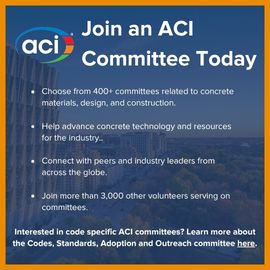
Flood safety and recovery tips
As parts of the Carolinas begin the recovery process following Hurricane Florence, state officials stress that the start of recovery from the catastrophic flooding — many rivers are cresting at major flood stage — doesn’t necessarily mean safety. Recovery carries its own unique set of risks and it’s important to understand the potential hazards posed by receding floodwaters. These can include electrical shock, contaminated waters and the proliferation of mold. Primary concerns include, but are not limited to: submerged electrical panels and heating, ventilation and air conditioning equipment; contaminated water systems through submerged water softeners or house filters; failed sump pumps and septic systems; flooded kitchen appliances and gas-fired pieces of equipment; and compromised foundations due to water pressure.
The International Code Council offers flood safety and recovery resources to help communities both prepare for floods and stay safe during the clean-up and restoration process. In addition, the Code Council and the National Council of Structural Engineers Associations, which have had a long-standing partnership in support of the design, construction and administration of safe and resilient buildings, have joined forces to create the Disaster Response Alliance (DRA). The goal of the DRA is to maintain a single, national database of skilled volunteers willing to assist jurisdictions with response as well as recovery activities, including building damage assessments, inspections and other code-related functions in the aftermath of a disaster.
Here are some things to keep in mind while addressing storm damage:
- Avoid walking or driving through flooded areas. Electricity can charge water from downed and underground power lines. Water can also contain sharp objects, dead or poisonous animals, or be contaminated with sewage and hazardous chemicals. As little as 6 inches of moving water can knock a person down.
- Don’t remove tree limbs or branches from around electrical utilities or power lines. Call the power company instead. The combination of electrical wires and floodwater creates a hazard.
- Wear proper safety gear (hard hats, goggles, work gloves, waterproof boots, and a mask).
- Dry out your home as quickly as possible by opening doors and windows. Use fans to dry wet areas. Throw away what you can’t dry quickly, such as damaged mattresses, carpeting, and rugs. Remove and discard drywall and insulation that has been contaminated with sewage or flood waters.
- Don’t turn power on or off or use an electric tool while standing in water.
- Avoid carbon monoxide poisoning by never using a generator, pressure washer or other gasoline-powered device in your home, basement or garage.
The International Codes — and specifically the International Residential Code — ensure homes are properly constructed to prevent against the worst of flood damage. Mitigation efforts will reduce your home’s risk to future floods and allow you and your family a speedy return home, with less damage, after a flood. If you are building, improving or retrofitting your home, consider these recommendations and consult with your local building official:
- Wet flood proofing your home allows flood water to flow through the uninhabited parts, such as the crawlspace or garage. Install flood openings (sometimes called ‘flood vents’) in foundation or garage walls to allow water to flow in and out to prevent the buildup of pressure. Another example is raising utilities above the base flood elevation.
- If you have an existing home with flood damage, the Code Council recommends that you replace damaged materials with flood damage-resistant materials, such as closed-cell insulation.
- Construct non-supporting, break-a-way walls designed to collapse under the force of water without causing damage to the foundation.








